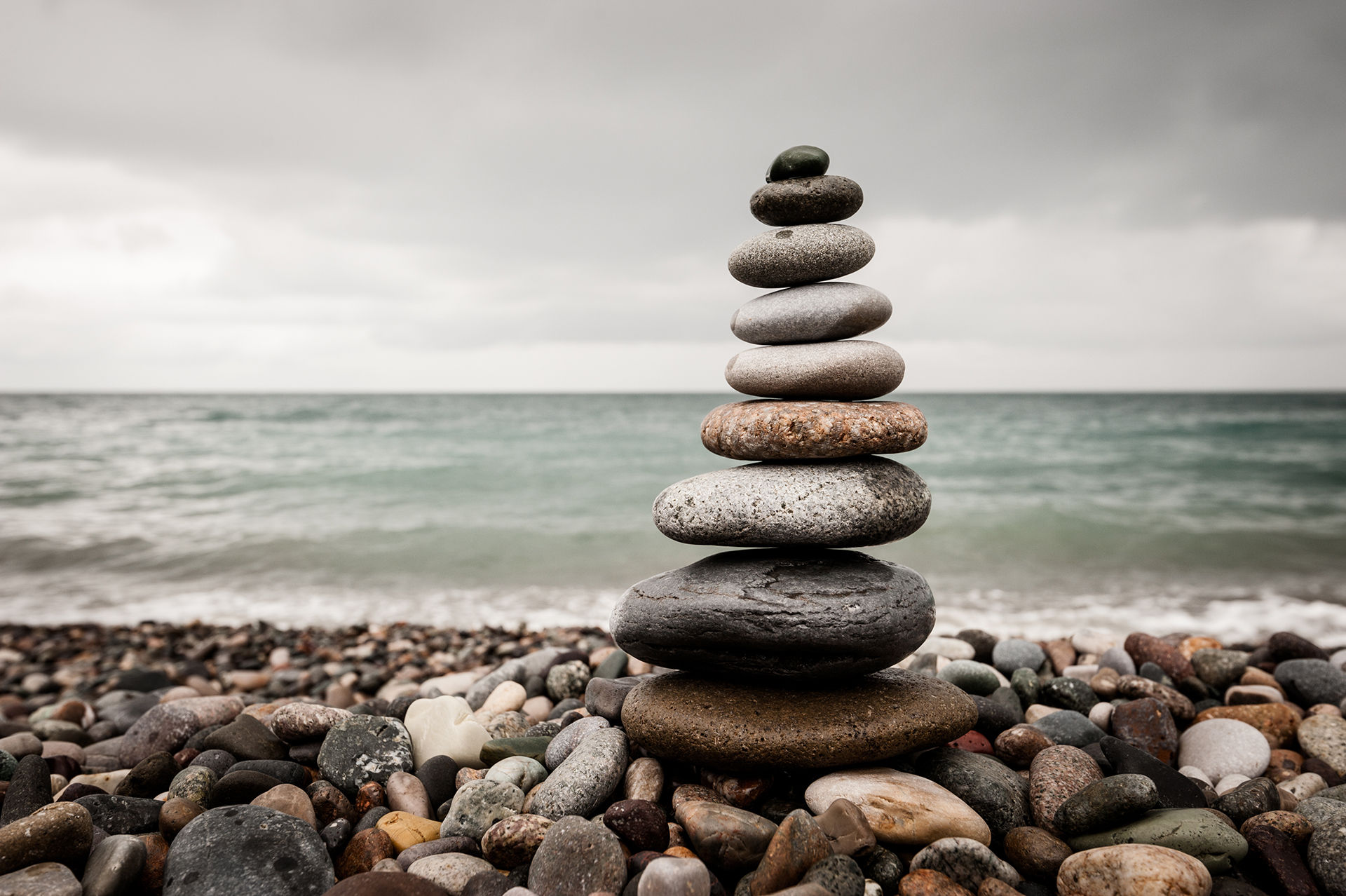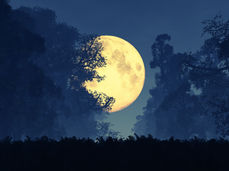Wholeness & Our Unconscious
- Sep 28, 2016
- 5 min read
Updated: Dec 23, 2025

Much of our spiritual life unfolds beyond the reach of conscious intention or effort. Beneath our prayers, beliefs, and spiritual practices lies a deeper inner world that quietly shapes how we experience God, ourselves, and others. In this article, I explore how our unconscious life plays a vital role in the journey toward wholeness, and why spiritual growth so often requires us to attend to what lies hidden as well as what is known.
Wholeness, Selfhood, and the Spiritual Journey
God calls us to wholeness through self-transcendence — to embrace our true selves in God, our deepest Ground of Being. Richard Rohr (a contemporary Franciscan monk and spiritual writer) expresses this as the journey from our False Self to our True Self. Jung understands this as the process of individuation, a movement from the ego to the Self. What increasingly interests me, in my work as both a spiritual director and psychologist, is the role the unconscious plays in this movement toward wholeness.
The Unconscious and the Call to Love
If, in the Christian tradition, we are called to 'love God with all our heart, all our soul and all our mind,' then our personal unconscious forms an important part of this. To become alive and whole we are invited to awaken within ourselves not only to the love of God and others, but also to a genuine love of self. For many, it can be difficult to accept that God loves us as we really are, not as we would like to be or don't want to be. As human beings we can have painful life experiences that erode our sense of self-worth. Some experiences can be more than the conscious mind can bear, and so become buried within the psyche, forming part of the personal unconscious.
Shadow, Persona, and the Masks We Wear
I have written elsewhere about how what Jung called the shadow can have a profound influence on our spiritual life. The persona we may then develop, and present to the world, can begin to mask our more vulnerable and authentic self, and in so doing stands in the way of psychological and spiritual wholeness, a dynamic sometimes referred to as spiritual-bypassing. Genuine self-love involves allowing these masks to loosen, and learning to love ourselves in something of the way God loves us, and often becomes a central focus of the spiritual journey, particularly in the second half of life. So, the path to wholeness and holiness winds through the personal unconscious and is often the focus and task of our journey in the second half of life.

Losing the Ego and Finding the True Self
The yearning to be with God as the source (and destiny) of our wholeness is at the centre of the inherent spiritual nature of the individual, and is the driving force of spiritual growth. Jürgen Moltmann (a leading 20th century theologian) wrote that the Spirit dwells in our hearts beneath our conscious level. This in-dwelling presence calls each human being to wholeness, to transcend the prison of self-interest (whose centre is the ego as the centre of consciousness) to embrace his or her True Self - grounded in the God who dwells within. This journey is encapsulated in the words of Jesus: “He who would save his life (psuche - psyche) must lose it,” (Matt 10:39). Losing the ego as our centre feels like death on the Cross - a form of 'egoic death' - but leads us to its utter transformation and true life in God. The path of spiritual progression is a return to our true centre in God, away from the ego. This unfolding of the true Centre of selfhood is accomplished not through any violent conquest of the heart, but only through surrender in love.

The Unconscious in the Mystical Tradition
God Within and God Beyond
This has long been understood by the mystics of the Christian tradition and other faiths. Saint Bonaventure (1221-1274) declared that, 'God is both the essence of each soul and the transcendent goal of the soul's spiritual journey,' and that the soul of each person is 'attracted to God transcendent by the God within.' Evelyn Underhill (1875-1941), in analysing the lives of many mystics, found that one common experience was an overwhelming consciousness of God where spiritual development takes place through the 'emergence of intuitions from below the field of consciousness.'
Masters of the mystical path often testify to the presence of God within the deepest self: Saint Catherine of Genoa (1447-1510) cried out running through the streets 'My deepest me is God.' Saint Symeon of the Eastern Church (949-1022) declared, 'God, whose providence extends to all details, how is God not in everything? How is God not in everyone? Yes, God is in the middle of everything. Yes, God is also outside of everything.' And, like Evelyn Underhill, taught those he saw for spiritual direction that the way to wholeness is through 'the illumination of the Spirit.'
Night, Depth, and Transformation
The Christian tradition has always dealt with the dynamics of the unconscious exemplified in St Teresa of Avila's vision of the soul as a diamond in the shape of a castle containing seven mansions, which she interpreted as the journey of faith through seven stages, ending with union with God. And we find a deep knowledge of the power and work of the unconscious in St John of the Cross' metaphor of Active and Passive Nights. Henri Huvelin, the famous 19th c. French priest and spiritual director, also used methods that helped deal with the unconscious to guide those in his care.
Dream, Image, and the Language of the Soul
Throughout Scripture, the Spirit is the one who guides God's people to new ways of seeing and being than given by our conscious minds alone. From the unconscious, the Spirit brings forth dreams, images — symbolic expressions of the unconscious — to inspire and breathe new life. Connecting with our unconscious brings a fresh releasing within us of dreams, myths and the imagination as we open to the well of what we do not yet know or what we have forgotten deep within.

In the Eastern Christian tradition, the early hours of dawn are viewed as the time of meditation and prayer, when night and day are commingling in ways that more readily allow us to move from the known to the unknown and from the nameable to the unnameable. This is the time that is closer to dream life, and the half-wakeful state of knowing, in which both light and shadow come forth and all things appear as one.
Often in spiritual direction work, particularly on retreats, the person is naturally led into an encounter with their unconscious - through dreams, imaginings, art, meditation and prayer; times of encountering 'messengers' from the invisible, unknown realms. We long for what we do not yet know to emerge from hidden and unawakened depths within us into the light of day, into the realm of full consciousness.
Jung and the Depths of the Soul
Carl Jung (1875-1961), the founder of analytical psychology, was perhaps the greatest prophet of the unconscious. He devoted his life to accessing the psyche, a word that derives from the Greek psukh meaning 'breath' or 'soul', and believed that wholeness was to be found by coming back into relationship with the unconscious depths of one's soul.
Jung distinguishes between the personal unconscious and the collective unconscious. The personal unconscious consists of what we have known or experienced individually in the past but which has slipped from consciousness into forgetfulness. The collective unconscious is like a river of images, or archetypes as he calls them, which flow deep within the human soul that are universally present within us all. It is from this river of collective unconscious that dreams, myths and the imagination flow.
So, discovering our True Self in God involves this connection with our unconscious, where treasures are to be found that 'lie in the depths of the water' (Carl Jung). Perhaps these are the 'treasures of darkness', 'riches stored in secret places', promised us in Isaiah 45:3.








































